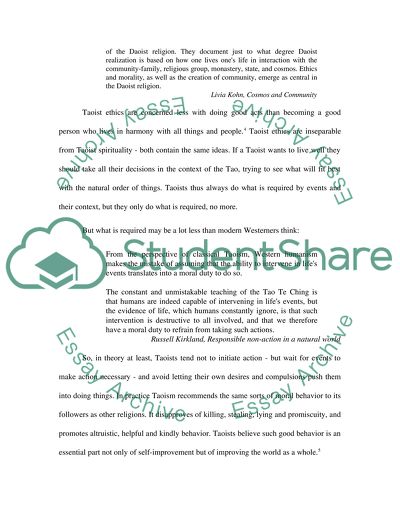Cite this document
(Ethics according to Taoism and Socrates Term Paper, n.d.)
Ethics according to Taoism and Socrates Term Paper. Retrieved from https://studentshare.org/philosophy/1530604-philosophy-high-school-essay
Ethics according to Taoism and Socrates Term Paper. Retrieved from https://studentshare.org/philosophy/1530604-philosophy-high-school-essay
(Ethics According to Taoism and Socrates Term Paper)
Ethics According to Taoism and Socrates Term Paper. https://studentshare.org/philosophy/1530604-philosophy-high-school-essay.
Ethics According to Taoism and Socrates Term Paper. https://studentshare.org/philosophy/1530604-philosophy-high-school-essay.
“Ethics According to Taoism and Socrates Term Paper”, n.d. https://studentshare.org/philosophy/1530604-philosophy-high-school-essay.


